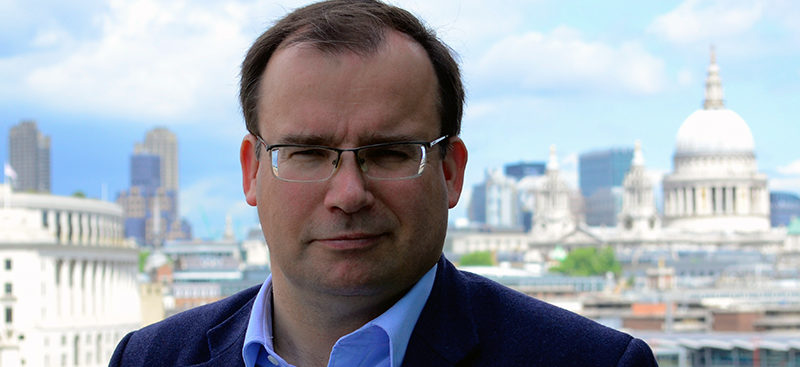Gareth Thomas is proposing a bill to ensure Brexit won't happen without a People's Vote. Here he tells Left Foot Forward why it matters.

The Harrow West MP might not be one of those instantly recognisable Remainers, but with today’s 10 minute rule motion calling for a People’s Vote on the final Brexit deal, Gareth Thomas could soon become the leading pro-European voice in Westminster.
Thomas’ proposal will come forward after Prime Minister’s Questions, in the form of a private member’s bill. It will be the first time Parliament discusses whether a vote on the final deal with Brussels should or not be scrutinised by the British public.
In a candid conversation with Left Foot Forward, the Labour MP opened up about his belief in a second referendum, his fears on Brexit and how he welcomes the lively debate being held inside his own party on Britain’s relationship with the European Union.
LFF: What moved you to speak up on a People’s Vote?
“Just a sense that negotiations were going badly and a growing awareness of the adverse implications for Britain of a bad deal, really. It’s been a gradual thing.
“The implications have become ever starker. Growth has begun to be hit, investment decisions have been put off by big business.
“The scale of what’s at stake has become a lot clearer for people in the sense that what’s coming afterwards might not be quite the promised land that the Brexiteers promised. It’s becoming really striking.”
LFF: Within the Labour Party the divisions are currently quite visible on Brexit. What would you say to Labour supporters asking where the party stands on this matter?
“I think it’s encouraging that there’s been a widespread recognition that we should stay in the customs union now. I think that’s a great thing.
“There’s a very live debate in the party about whether we should stay in the single market, our membership of the EEA, what both of those might bring. I think that debate is a good thing.
“It’s clear that there has been a shift of opinion in some Leave areas, from some Leave people, and that too that’s a good thing.
“What I want to do is to say, well this is isn’t a good deal, why should it just be 650 MPs who get a vote on whether to accept that deal or not?
“Why shouldn’t the people who live next to me, who live in my street, why shouldn’t they be entitled to have a vote on whether the final deal is good enough, given the significance of what is at stake for our country’s future? Why shouldn’t they be able to say I like it, I don’t like it, I accept the deal, I don’t accept the deal?”
LFF: How would you then see this People’s Vote pan out? Critics say a second referendum would annul the first one and that’s undemocratic.
“Firstly I should say Parliament should have the right to determine how a People’s Vote would work.
“But for me, instinctively, I would say that choice should be between the final deal that gets negotiated and staying in the European Union. And that is a very different proposition to the question that was put to the British people a couple of years ago.
“I don’t think it’s delegitimising anything. It is a vote on a related but separate question, where people have parity about two choices on offer: the deal the government is able to negotiate and staying in the European Union.
“I don’t understand why Brexiteers are so frightened of giving the people of this country a say on whether the deal they negotiated is good enough. And I really can’t see why Jacob Rees-Mogg and Co are frightened of putting what they have achieved to the British People.”
LFF: So any prognostics on today’s intervention and response to it, then?
“Anybody predicting what Parliament does in the immediate political future is risking putting themselves in a lot of trouble [laughs].
“But I hope the House of Commons will give a good hearing to the debate and it will move the argument forward.”
Joana Ramiro is a reporter for Left Foot Forward. You can follow her on Twitter for all sorts of rants here.
To reach hundreds of thousands of new readers we need to grow our donor base substantially.
That's why in 2024, we are seeking to generate 150 additional regular donors to support Left Foot Forward's work.
We still need another 117 people to donate to hit the target. You can help. Donate today.



